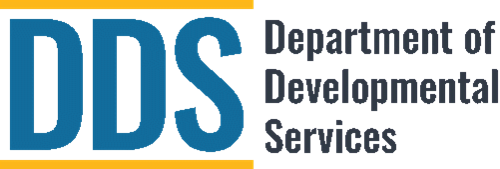
The California Department of Developmental Services (CA DDS) has contracted with an independent third party, Public Consulting Group (PCG), to conduct virtual site assessments (VSAs) of a randomized, statistically valid sample (1,200) of HCBS settings in California. PCG is a nationally recognized public sector consulting firm, and the project team has extensive experience conducting similar onsite provider assessments in other states. PCG also has experience conducting virtual site assessments in other states. In addition, PCG has been working with CA DDS since 2018 to conduct trainings and develop a virtual site assessment rollout plan to come into compliance with the federal HCBS Settings Final Rule.[1]
Safety and well-being are of the utmost importance to PCG and CA DDS during this challenging time. PCG is moving forward with the necessary actions to meet state and national requirements for the safety of those in the areas in which we work and serve. We are also coordinating with the State of California to implement reporting and protective measures based on the most current guidance from the Centers for Disease Control and Prevention (CDC) and other health authorities regarding best practices and precautions surrounding COVID-19.
The State of California authorized PCG to conduct virtual site assessments to prevent unnecessary risk and potential spread of COVID-19. As the virus continues to affect a growing number of individuals across the State of California and our nation, PCG will coordinate and communicate essential actions and contingency plans promptly. We encourage providers to contact us with any questions or concerns, so we can address them as quickly as possible. Please refer to the FAQs below to better understand this project and PCG’s plans to move forward with virtual site assessments. PCG is committed to creating a safe virtual environment for all providers and individuals.
In order to determine the effectiveness of the virtual process, PCG will pilot the virtual process with 10% of the settings in the statistically valid sample and will record the virtual site assessments for training and quality assurance purposes. PCG will also be talking with providers of a variety of service types as well as individuals to determine what works well in the virtual site assessment process and which areas need improvement.
Our goal is to acquire a 360-degree view of how services are delivered in the setting in which providers are operating, and most importantly, how that setting is being responsive to the people being supported in today’s environment. Service delivery may be different now, and it is bound to continue to evolve. We want to understand what is being done and the challenges being faced.
We understand that providers are integral to support of the people being supported. We will be asking providers questions in the context of a world where services have drastically shifted. Providers will be asked to respond to these questions in the context of how they previously provided services and how they currently provide services during the pandemic. Additionally, individuals will be asked to discuss their experiences in the setting and community and answer questions regarding their support from providers.
1Centers for Medicare and Medicaid Services, “Home and Community Based Services Final Regulation,” Medicaid.gov, https://www.medicaid.gov/medicaid/home-community-based-services/guidance/home-community-based-services-final-regulation/index.html (accessed November 6, 2020).
Purpose of the Virtual Site Assessment
Q: Why is CA DDS conducting Virtual Site Assessments?
A: All states are required to review, analyze, and report the results of all settings in which Home and Community–Based Settings (HCBS) are delivered. CA DDS is conducting virtual site assessments of a sample of settings as one part of its effort to come into compliance with the federal HCBS Settings Final Rule. The purpose of these regulations is to maximize the opportunities for individuals to receive services in integrated settings and realize the benefits of community living, including opportunities to seek employment and work in competitive integrated settings.
Q: How do Virtual Site Assessments differ from other DDS Site Visits?
A: PCG and the State of California have agreed to conduct these assessments virtually to assure safety of staff, providers, and the people receiving services. PCG staff will interview designated site staff virtually to determine each site’s level of compliance with the HCBS Final Rule. Our HCBS site assessments typically would consist of an in-person visit to meet with staff, talk to people receiving services, and observe the environment; however, under existing health and safety concerns of the COVID-19 pandemic, in-person visits will not be happening at this time. Virtual site assessments will be conducted via Microsoft Teams.
Types of Settings Assessed
Q: Which settings will be assessed?
A: A randomized, statistically valid sample (1,200) of the following settings/services will receive virtual site assessments:
DD Waiver and 1915(i) State Plan
- Adult Family Home
- Family Teaching Home
- Adult Residential Facility/Adult Residential Facilities for Persons with Special Health Care Needs
- Certified Family Home/Foster Family Home/Small Family Home
- Group Home
- Residential Care Facility for the Elderly
Child Day Care
-
Child Day Care Facility/ Child Day Care Center/ Family Child Care Home
Day-Type Services
- Activity Center
- Adult Day Care Facility
- Adult Development Center
- Behavior Management Program
- Community-Based Training Provider
- Socialization Training Program
- Community Integration Training Program
- Community Activities Support Service
Supported Employment (Group Services)
Work Activity Programs
Q: Will all settings receive a site assessment?
A: A statistically valid sample (approximately 1,200 settings) from the total number of California sites will receive a virtual site assessment, and additional sites may be selected. The sample will be based on the sampling methodology developed by PCG and approved by CA DDS. CA DDS will continue to work with all providers to complete the self-assessment, so the baseline information can be gathered for all providers. All providers will be included in the pool of providers who may be selected for a virtual site assessment conducted by PCG, irrespective of whether they completed a self-assessment or not.
Q: Will all settings receive a site assessment right away?
A: PCG will pilot the virtual site assessments as the first phase of the process. The pilot will consist of virtual site assessments for 10% of the sample of the provider sites to determine if any adjustments to the approach, protocols, and training are necessary to improve the virtual site assessment approach. The purpose of the pilot is to help confirm readiness, identify gaps, and address improvements prior to full scale implementation. The pilot is an opportunity to test the goals and effectiveness of the virtual site assessment process end to end. It is anticipated that adjustments will be made based on learnings from the pilot, and the trained staff will be prepared to perform the project requirements at full scale.
Virtual Site Assessment Preparation and Timing
Q: Will Providers be notified of the Virtual Site Assessment beforehand?
A: Yes. Virtual site assessments will be scheduled in collaboration with providers. Providers will be contacted directly by PCG staff for scheduling. PCG’s team will communicate directly with providers either by email or telephone to determine the best time to meet with staff and potential individuals to be interviewed.
Q: When will the Virtual Site Assessments be conducted?
A: Sites identified will receive virtual site assessments from November 2020 through May 2021. Non-residential virtual site assessments will be scheduled and conducted within normal operational hours. Residential virtual site assessments may be scheduled throughout the day with the possibility of late afternoon/early evening hours if they are more convenient for the provider. We will work with providers to flexibly schedule the visits to accommodate both the people receiving services to be interviewed (based on their willingness) and the providers. Phase One of the pilot project will begin on November 16, 2020, and will end approximately 45 days later.
Q: What application or equipment is needed to conduct the Virtual Site Assessment?
A: PCG prefers that providers utilize Microsoft Teams to complete the virtual site assessment. This application provides the safest private virtual environment. If for some reason you are not able to access Microsoft Teams, PCG has a list of trouble shooting tips to guide you. Please call or email scheduling for that guide. PCG is committed to work with providers to troubleshoot and make sure the provider is set up to “go live” at their scheduled, virtual time.
Q: What activities will take place during the Virtual Site Assessment?
A: PCG staff will virtually meet with providers to discuss each site’s policies, procedures, and daily operations. During a typical site assessment, PCG staff would tour the site and observe activities taking place; however, current health and safety circumstances will not allow for this. As a solution, we recreated a similar experience in a virtual environment. Providers will be expected to provide a virtual tour for PCG assessors, so they are able to visualize the space. PCG assessors will also work with providers to best understand the site’s environment and the day-to-day activities in the setting by discussing various documents, daily activities, and operations. Additionally, PCG assessors will meet with individuals in the setting to understand how individuals are supported in the setting and to document individuals’ feedback on their experiences within the setting.
Q: How long will a Virtual Site Assessment take?
A: Virtual site assessments will take approximately (2) hours. The actual time it takes to complete the virtual site assessment will depend on various factors, including the number of individuals receiving services, the services provided, and the provider’s preparation time for the virtual site assessment.
Q: As a Provider, how should I prepare for the Virtual Site Assessment?
A: To prepare for the virtual site assessment, providers should review the questions that will be asked so that the designated responders are familiar with the information to be discussed. It is at a provider’s discretion if they want to have more than one staff person participate in the conversation. It is important to assure that participants are knowledgeable about the setting, the agency, and the people who are supported/receiving services. Virtual site assessments are designed to include discussions about typical daily activities and interviews in the setting to document the provider’s current level of compliance with the HCBS Settings Final Rule.
To make the virtual site assessments as seamless as possible, providers are asked to assure that the Site Administrator or designee is available for questions during the scheduled visit time. Providers should have individuals (based on willingness) available to meet privately with PCG assessors as part of the virtual site assessment. A private and quiet area should be provided for the interviews for a safe, virtual environment. Other types of arrangements can be made for individual interviews if an individual(s) is not available at the time of the VSA. If individuals attend a day program or, for other reasons, are not able to attend the scheduled VSA but would like to participate, PCG will make necessary arrangements accordingly.
Checklist for Providers prior to the Virtual Site Assessment
PCG encourages Providers to prepare for the virtual site assessment by following this checklist:
- Gather copies of Individual Service Plans (ISPs) and Individual Program Plans (IPPs) to access and reference during the site assessment.
- Assure staff are available to answer questions from the site assessor(s).
- Ask people receiving services if they want to meet the reviewer(s) and if they would answer a few questions.
- Review and make available a copy of the lease or residential agreement signed by people receiving services.
- Understand policies and practices and make them available for reference during the site assessment.
- Provide a copy of these FAQs to the direct support staff in the setting.
Q: Which documents should I have available for the Virtual Site Assessment?
A: Providers should be prepared to discuss and display all components related to the day-to-day operations of the setting. Site assessors may request information relating to operations including an organization’s policies and procedures, scheduled activities, and daily operations.
Specific documentation that may be asked about includes but is not limited to the following: setting license, person-centered plans (ISPs and IPPs), admission agreements, residency agreements, activity calendars, menus, visitor policy, meal schedules, personal rights, house rules, eviction process, and termination policy.
Q: As a provider, what if I have not submitted my Self-Assessment?
A: The virtual site assessment is not contingent upon the completion of a self-assessment, so you may be chosen to be in the random sample to receive a virtual site assessment regardless of whether or not you have completed a self-assessment. If you have not completed a self-assessment, you can reach out to your regional center to discuss next steps to complete it.
Virtual Assessment Results
Q: Who will determine each site’s level of compliance?
A: PCG staff will analyze the information collected from the virtual site assessment to determine each site’s level of compliance. PCG’s staff will provide the site reports to CA DDS with a recommendation of the site’s compliance with the HCBS Final Rule. CA DDS will make the final decision on the level of compliance.
Q: Will Providers be notified of the results of their Virtual Site Assessment?
A: Yes. Providers will receive notification of the compliance determination based on the virtual site assessment.

Contact us!
If you have further questions regarding the HCBS Virtual Site Assessment, please either call the dedicated PCG Call Center or email the dedicated project inbox:
Dedicated Project Phone Line: 833-976-1858
Dedicated Email Inbox: CADDSHCBS@pcgus.com.

